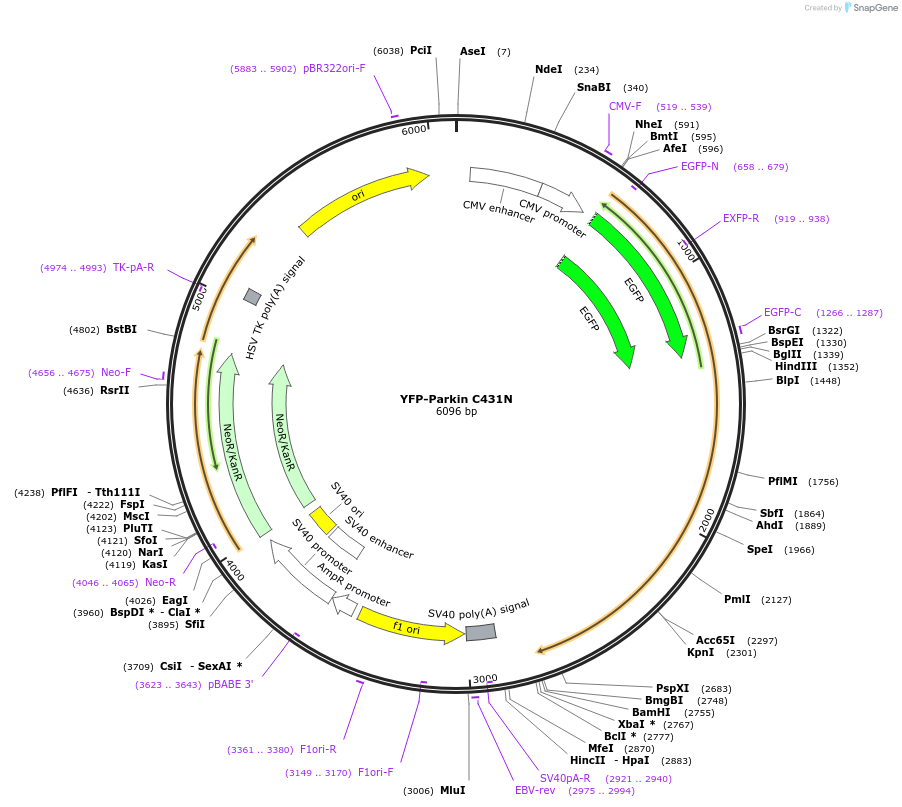-
Purposeexpresses mutant Parkin with YFP tag in mammalian cells
-
Depositing Lab
-
Sequence Information
Ordering
| Item | Catalog # | Description | Quantity | Price (USD) | |
|---|---|---|---|---|---|
| Plasmid | 46924 | Standard format: Plasmid sent in bacteria as agar stab | 1 | $89 | |
Backbone
-
Vector backbonepEYFP-C1
-
Backbone manufacturerClontech
- Backbone size w/o insert (bp) 4698
- Total vector size (bp) 6096
-
Vector typeMammalian Expression
-
Selectable markersNeomycin (select with G418)
Growth in Bacteria
-
Bacterial Resistance(s)Kanamycin, 50 μg/mL
-
Growth Temperature37°C
-
Growth Strain(s)DH5alpha
-
Copy numberHigh Copy
Gene/Insert
-
Gene/Insert namePark2
-
Alt nameParkin
-
SpeciesH. sapiens (human)
-
Insert Size (bp)1398
-
Mutationchanged cysteine 431 to asparagine
-
GenBank IDNM_004562
-
Entrez GenePRKN (a.k.a. AR-JP, LPRS2, PARK2, PDJ)
- Promoter CMV
-
Tag
/ Fusion Protein
- EYFP (N terminal on insert)
Cloning Information
- Cloning method Restriction Enzyme
- 5′ cloning site HindIII (unknown if destroyed)
- 3′ cloning site BamHI (unknown if destroyed)
- 5′ sequencing primer AGAAGCGCGATCACATGG
- 3′ sequencing primer CTACAAATGTGGTATGGCTG
- (Common Sequencing Primers)
Resource Information
-
Articles Citing this Plasmid
Terms and Licenses
-
Academic/Nonprofit Terms
-
Industry Terms
- Not Available to Industry
Trademarks:
- Zeocin® is an InvivoGen trademark.
These plasmids were created by your colleagues. Please acknowledge the Principal Investigator, cite the article in which the plasmids were described, and include Addgene in the Materials and Methods of your future publications.
-
For your Materials & Methods section:
YFP-Parkin C431N was a gift from Richard Youle (Addgene plasmid # 46924 ; http://n2t.net/addgene:46924 ; RRID:Addgene_46924) -
For your References section:
PINK1 drives Parkin self-association and HECT-like E3 activity upstream of mitochondrial binding. Lazarou M, Narendra DP, Jin SM, Tekle E, Banerjee S, Youle RJ. J Cell Biol. 2013 Jan 21;200(2):163-72. doi: 10.1083/jcb.201210111. Epub 2013 Jan 14. 10.1083/jcb.201210111 PubMed 23319602







